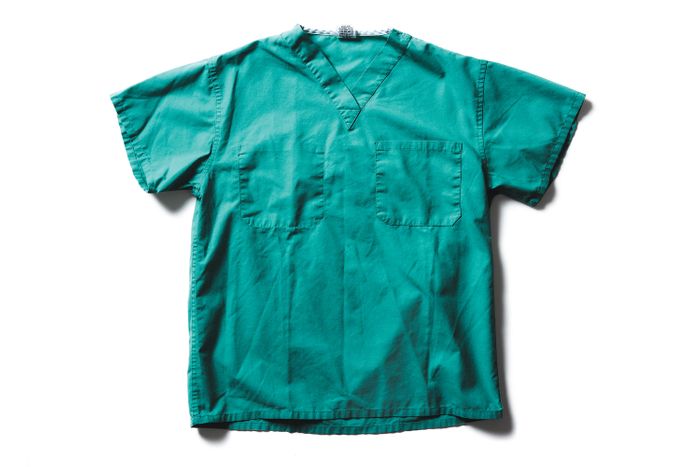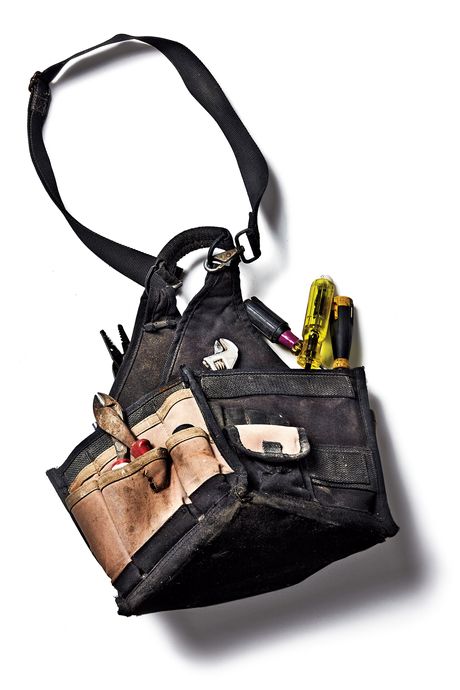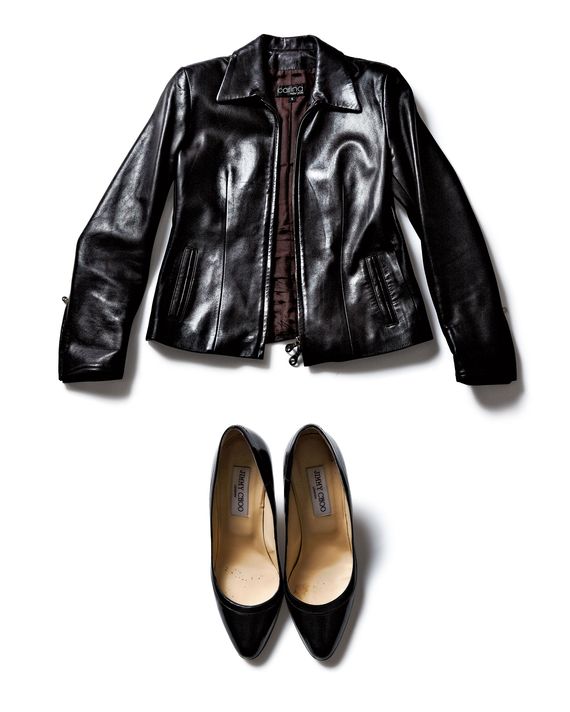
As the first anniversary of the Harvey Weinstein revelations approaches, scores of prominent men continue to be accused of sexual harassment in the workplace, though a few — Matt Lauer, Louis C.K. — have been angling for a comeback. Meanwhile, an innumerable number of men still abuse female employees, co-workers, and clients with almost casual impunity. “I love the reckoning that’s come with #MeToo,” says Laura, a public employee whose sexual harassment is ongoing. “But I’m not sure how it translates to people like me. I don’t have a media outlet that’s going to be fascinated by my boss acting like an asshole. Nobody cares. It’s just normal life.”
To better understand what the #MeToo movement is up against, we spoke with women from dozens of industries who remain unable to report sexual abuse and harassment. Most requested anonymity, fearing that speaking up would cost them their jobs or subject them to gossip and innuendo that would damage their work environments beyond repair. Some have never told their stories to anyone, including those closest to them. And in many cases, it was other women who advised them to remain silent, warning that reporting would only make things worse. As one union electrician said, “I’ve earned my place in this industry across decades of silence.”
But choosing not to reveal sexual harassment should not be mistaken for passivity. The women who shared their stories with us made a variety of nuanced, careful calculations about how to deflect, rebuff, and resolve the discriminatory — and sometimes criminal — mistreatment on their own. Some changed their work routines. Others began carrying a weapon, got a dog, or verbally challenged their aggressors. Whatever the strategy, they paid a heavy price, from altering their physical appearance to giving up jobs they loved. Which raises this question: What would our world look like if women could do their jobs instead of spending so much time and energy combating sexual harassment?
“Even the older women ignore it.”
Jessica, 26
Hospital technician, Florida
There are two men at the hospital I’ve definitely had uncomfortable interactions with. One guy came up to me in the OR, with ten other people around, and said to me, “You know, you’re the sexiest tech we’ve had.” I thought about talking to HR, but I don’t even know which HR to go to because he and I both work for third-party companies, not the hospital.
The other guy I’ve had issues with is the nurse anesthetist. One time he made a comment about having me sit in his lap. Another time he told me he was disappointed I wasn’t wearing shorts. But if I reported it, I think people would be like, “Oh, he’s just making a joke. You’re getting riled up about nothing.” I don’t feel like I have anybody on my side. Even the older women ignore it.
There should be a book for 50-year-old men called This Is Sexual Harassment that makes it easy for them to understand. Like: Don’t say anything to me that you wouldn’t say to me in front of your wife. And: Just do your job! Everyone is here to work. No one is here to get hit on.
BACK TO TOP
“I was stunned he would do this to someone who taught sexual-harassment law.”
“Stephanie,” 58
Law professor, Midwest
I’d recently moved with my 11-year-old daughter and my partner of seven years to start a new professorship. My specialty was sexual-harassment law. We became close to another family in our neighborhood, and the father was a tenured professor in my department. One night, after a Halloween party at the dean’s house, he tried to kiss me. I told him, “This is not okay. This is not what we’re doing.” But over the following weeks, he kept coming to my office. I told him, “You need to stop this.” He goes, “Can we at least shake hands, be friends?” I said okay. But when I put my hand out, he pulled me in and tried to kiss me again.
Even now, thinking about it, my cheeks are getting hot. I still remember the humiliation and disgust. I was just stunned he’d do this to someone who taught sexual-harassment law.
I didn’t come forward. I was the only out person on the faculty, and I’d already been accosted by a professor who yelled at me about how homosexuals molest children. Someone filed a complaint against him on my behalf, but nothing happened to him. I was untenured and a single parent, but I felt like such a jerk: I didn’t follow the advice I give students. Things only get cured when people speak up.
Eventually I did make an informal complaint with the associate dean. She said, “You have to understand, you’re red meat. This is going to happen.” In other words: You’re an attractive, intelligent, sexually available woman, so it’s your responsibility to be careful.
It was only when I got tenure that I was finally like, It’s okay now. Then I could exhale. I was going to keep my job. I’m no longer red meat, and he doesn’t scare me anymore. I mean, he does, but he shouldn’t.
BACK TO TOP
“The first thing I saw was the car of my old supervisor.”
“Daniela,” 45
Farmworker, New York
I came here undocumented in 1994, and I’ve worked in agriculture ever since. A few months ago, my supervisor started to tell me dirty things. He invited me to go to his apartment. He told me he was by himself and his girlfriend was far away. He told me when he was with his girlfriend, he could leave her trembling all over. I told him no. Eventually he started to give me harder work in retaliation.
There was no HR office at the company. There was one other supervisor I could have talked to, but he was a family member of the perpetrator. There was another boss, but he only spoke English, and the only two people who could interpret for me were not trustworthy.
After my old job ended, I filled out an application for a job with benefits. I got an interview, but when I arrived, the first thing I saw in the parking lot was the car of my old supervisor. I was terrified. I just left. I didn’t even go to the interview, because I was so afraid to see his face. So I’m still doing the same type of work I used to do. And because it’s agriculture, there are no benefits at all.
BACK TO TOP
“Amanda,” 25
Police officer, Maryland
On the night shift, the sergeant would say things to me like, “So when are we going to have sex?” He would come up and touch my shoulders or run his hands through my hair. I tried to laugh it off. But when I finally told him, “No, I’m never going to sleep with you,” he got really angry. He was very insulting, making negative comments about me as a worker and my appearance.
The thing that got to me most was when another investigator in the unit drew up a poster about how he thought one of the supervisors had slept with me. He posted it all over the department.
I don’t think I ever considered saying something. It’s an area where saying “Snitches get stitches” is not just a joke. A friend who knew the director of Internal Affairs asked him what you can do about sexual abuse. The director was like, “It will go worse for her than it will for him if she reports anything,” which pretty much sums up the process.
BACK TO TOP
“It feeds the impostor syndrome.”
“Natalie,” 36
Marketing manager, Ohio
I’ve worked in a number of different jobs, but the one thing that’s been universal for me is that every male boss I’ve ever had has harassed me in some way. And I have not at any point come forward or sought the help of HR or even upper management. When I was new in my career, I was afraid of losing my job. Later in life, I was really well compensated and didn’t want to jeopardize my lifestyle.
One day, when I was the marketing manager for a family chain of restaurants, I got called into my boss’s office. I closed the door behind me because that was the standard procedure for meetings. When I turned around, his penis was out.
I didn’t know what to do. This man was married with children. I went back into my office. I’m like, Why am I here? Because they think I’m doing good work? Or because I’m just a sex object? It feeds the impostor syndrome.
I didn’t say anything, because I knew they would just find a reason to fire me. When men do that stuff, the women they harass become a liability.
Later he came to me with a plan to help reimburse me for my college expenses. I don’t know if he was trying to buy my silence, but I’m not stupid — I took it.
BACK TO TOP
“I remember thinking, I wish I was fat again.”
Brooke, 37
Waitress, Illinois
I had gastric-bypass surgery my last year of undergrad and lost 120-ish pounds. I had this new body people were noticing, and it was so weird for me.
After graduation, I went back to the Podunk town I had come from and worked as a waitress in a restaurant owned by my aunt and uncle. It was my first job. There was a middle-aged man who lived above it and worked for my aunt as a handyman. On my birthday, he offered to take me to dinner. On our way home, in the car, he put his hand on my leg. I was like, This is just a joke. I had been fat for so long that people didn’t hit on me. Then he put his hand in the front of my shirt and started touching me. I was so scared we were going to crash, I pulled over. Finally he was done, and I took him back to the restaurant, where he lived.
I didn’t have a ton of life experience, so I was like, I’m gonna tell my aunt. If I had a problem, she was the person I’d go to. But when I told her, she looked at me and goes, “But Brooke, you hang out with these guys at the restaurant all the time.”
I was in shock. My aunt, this person I had trusted my entire life, wasn’t on my side. That was almost as bad as the actual assault. I remember thinking, I wish I was fat again. If I was fat, none of this would have ever happened.
Now I have situational anxiety — what could I have done differently to prevent this? I have to be hyperprepared for every situation.
BACK TO TOP
“In construction, it’s just a matter of when, not if.”
“Jane,” 34
Construction worker, Alaska
Not long ago, I was on a job, and there was a crane operator who kept asking me to go to the movies or dinner. He’d make comments like, “You know what I want.” The other guys I worked with said, “Yeah, he’s kind of a shitbag, but it’s hard to find a good crane operator, so we’re not gonna do anything.”
One day, after I turned the guy down, we were cleaning up the yard. He got in the forklift, put it in reverse, and used it to pin me up against the wall. I’m like, “What the fuck are you doing?” He laughed: “Calm down. I was just joking.”
I didn’t report it, because I thought it wasn’t bad enough. I wasn’t raped, so they’re not going to take it seriously. You hear stories about what happens when you report it. There was a gal who did, and she got blackballed and couldn’t get work. Now all the guys say, “She’s a lying bitch. She’s gonna just flirt with you and then accuse you of sexual harassment.” In construction, it’s just a matter of when, not if, it happens to you.
Right now, there’s a company that has most of the work, and I need a job. But that crane operator is there. Do I really want to go work with him again?
BACK TO TOP
“I’m a grandmother, and they’re still talking shit about me.”
Lisa, 50
Electrician, Michigan
My local union is a good ol’ boys’ club. It’s been in existence almost 100 years, and we’ve had a total of eight women. They’re like sitting ducks. You’re on a job, and you have to walk past a hundred guys, and they’re all hooting and hollering and making snide remarks — talking about which one’s going to get you tonight. It’s almost like a no-win. If you only talk to the women on the job, you’re a lesbian. If you only talk to the guys, you’re a slut. If you talk back to anybody, you’re a bitch.
If you complain, you’ll be off the job, and that’s after you’ve had to drag your ass across the country to get work. It takes your first two paychecks to cover your expenses to get there and two more to get back home.
Three days ago, I get a call from someone at my local, and he tells me that guys at the job he’s on are saying I’m sleeping with all the apprentices. That’s amazing to me after 20 years doing this. I’m a grandmother, and they’re still talking shit about me.
BACK TO TOP
“The advice was just to cover up your gender.”
Tatiana, 26
Prison therapist, Washington
While I was in graduate school, I had female supervisors who gave it to me straight: If I wanted to work in forensic mental health, I would need to have a thick enough skin to not let something like sexual harassment interfere with my job. If I reported a corrections officer, I might lose access to my patients; officers might not let me into a unit or would suddenly be unavailable to assist me in meeting with a high-security patient.
When I started working at a state prison, I experienced harassment regularly — by corrections officers, by staff, by inmates. The vast majority of it was verbal: asking about my sex life, commenting on my clothes and my appearance, repeatedly asking me out on dates despite my saying no. At first, I accepted the advice I was given. In response to a sexualized comment, I might be like, “Wow, you gotta get your eyes checked.” Trying to just downplay it.
That works, but it basically validates what they’re saying and gives them room to continue. After I made a remark to one officer over an inappropriate comment he made, he said my clothes were too tight and he felt the need to report it for my “safety.” Later, when I was a therapist for mentally ill men on a hospital ward, I came inside with rain-soaked clothes and was reported to my supervisor for “treating work like a wet-T-shirt contest.”
Today I see women wearing skirts or blouses, and I can’t do it. I am afraid to be overly sexualized. I’ve been to a place where I was reduced to a sexual deviant. I’ve worked so hard in my career to get where I am that I will never let somebody do that again.
BACK TO TOP
“When you’re a woman, you are not in a position of power, even if you wear a collar.”
“Diane,” 38
Pastor, western United States
As a pastor, you’re never your own person. You’re always an extension of this institution you’re representing. From my very first call, when I was 27, I’ve gotten so many comments about my appearance — what I wear, my hair and jewelry and makeup, when I lose or gain weight. People feel like you’ve been hired to be available to hug them, the same way you’re available to preach the Word or bury their dead. There is one gentleman at my current congregation who thinks he’s entitled to a hug every time he interacts with me. A few months ago, after a memorial service, he took his finger and went down my back along my bra strap. After that, I let some people know, “If you see me talking to this person, please come and interrupt the conversation, because I do not trust this individual.”
The perception is that the pastor is always in the position of power. Bullshit. When you’re a woman, you are not in a position of power, even if you wear a collar. If there is sexual misconduct, you’re not supposed to call the police — you’re supposed to trust the church to take care of it. But the church doesn’t take care of it, and to speak up is to condemn yourself and put your career on the line. As a woman pastor, if anything happens, you have to deal with it pretty much on your own: Suck it up, rise above it, and act like nothing has happened.
BACK TO TOP
“I never put him on the hook for any of it.”
“Laura,” 44
Health-care administrator, New York
I built my career at a government health-care agency. And even in do-gooder professions, there are still gross people who will abuse the smallest amount of power. One night after work, a group of us met for drinks, and this official in the agency joined us. Afterward, as I was walking to the subway home, he turned to me and said, “All I want to do right now is put my dick in you.”
I’m a feminist. I have spent my career mentoring women. But in that moment I just laughed it off. You want to defuse the situation, especially because this person is high up. But after I walked away, I called my husband and just started sobbing.
He started sending me flirtatious emails. Another time he propositioned me: “I want to fuck you.” I kept rebuffing all of it, but here’s where I kick myself: I never put him on the hook for any of it. I would say things like, “You know, if I were you I wouldn’t put things like that in a work email.” I thought to myself, What are you doing? This piece of shit does not deserve all this protection you’re giving him. But on the other hand, I felt like I was kind of protecting myself, too.
Even though I switched jobs, I’m still tied to him professionally. I still get text messages from him after work that imply he’s thinking about me sexually. My husband told me I should take myself off projects he’s involved in, but why should I give up interesting work and money because of him?
Ever since #MeToo, I’ve secretly been waiting to hear that he’s been fired. I hope he is. I hope he’s scared.
BACK TO TOP
“ ‘I’m a straight man,’ he said. ‘What do you expect?’ ”
“Maddie,” 25
Theme-park actress, Midwest
Theme parks are very high-energy, very campy. This past fall, I was in a show that was set in high school in the ’80s. I was playing this mean girl who stole the boyfriend away from the good girl, and the guy I “stole” was our show captain—the cast member appointed by the director to be a kind of second-in-command. This guy would grab my butt, stare at my chest, and change the choreography so his hands were on me longer.
I shared my concerns with a couple of the girls in the cast, and they all had similar stories. We all used one dressing room, and this one girl called out the show captain for staring at her while she was changing. “I’m a straight man,” he told her. “What do you expect?”
I never felt like I could report it, because he was the show captain. “Don’t sweat the small stuff” is a lesson my parents always taught me. But what is the line between the small stuff and the stuff that really affects you?
BACK TO TOP
“It’s always ‘Oops’ with these people.”
“Susan,” 54
Nanny, New York
When I migrated from the Caribbean, I started working as a nanny. For years, I worked for a multimillionaire family in the suburbs. I would be walking up the stairs, and his hand would brush my breast when he passed me. He would say “Oops.” Or he would come in and hit me on my butt: “Oops.” It’s always “Oops” with these people. But I know they were not mistakes. And it’s not because he’s attracted to me. They think that because you’re working in their house, you are subject to them. They don’t think of it as a job — they think they’re doing you a favor. They still have that slave-owner mentality.
Over the 20-odd years I worked there, I learned how to maneuver. You try not to be in intimate places: If he’s in the bedroom, you keep out of the bedroom. He would come in, and I would think, Don’t touch me. Just don’t touch me, because sometimes you feel you want to punch him out. But you can’t, because you’ll go away in handcuffs.
BACK TO TOP
“I’m always looking over my shoulder.”
Dine, 47
Oil-field water hauler, Texas
I had three small children, and I wanted to give them a good life. A friend said, “If you want to make real money, go drive an oil rig.” Best and worst thing I’ve ever done. About three years into the job, I was raped. I went to use the bathroom in back of the water station, where you unload your tank, and when I came out, a guy pushed me up against the building.
Afterward he told me, “If you ever tell anybody, I’ll call you a damn liar.” He had been in the oil fields for 15, 20 years and had an upstanding reputation.
Nobody would have believed me. I would have been told I asked for it.
I remember coming home that night and just sitting in the shower, crying. I made sure I was never alone at the station again. I was scared for a long, long time. Now I’m an over-the-road driver, but even out here, I’m always looking over my shoulder. We can’t carry guns, but I do have a Taser. And my Chihuahua; she’ll bite your fingers and toes. She lets me know if somebody comes around me when I’m sleeping.
My friend mentioned #MeToo. I’d never heard of it. I’m glad the Hollywood actresses are putting the word out there, but they’ve got the money, the fame, and the power behind them that we don’t, and that part sucks.
BACK TO TOP
“It’s a fear that lives inside you.”
Maria, 30
Factory worker, Illinois
My husband and I had left Mexico in pursuit of a better life, especially for our kids. I went to a temp agency, and they told me it didn’t matter that I couldn’t speak English, that I couldn’t drive, that I only had two years of high school. There was a plastics factory looking to hire reliable hands.
Most of the women were placed along the assembly line, but I’m to do different work, the boss tells me the first week there. We wind past dozens of women and up the stairwell to a small area, just enough room for me and a table. Soon another factory hand comes in — the boss’s nephew.
He started on me right away: watching me, touching me, saying things about my body. When I’d go to the bathroom, he would follow me and wait outside, both of us knowing there wasn’t a lock on the door. Eight hours of constant harassment. And some days after work, he’d follow me to the train station in his car, saying things to me about my body through the window.
I was really scared because there was no one around. After a month, I realized that nothing would change unless I spoke up. So I went to the temp agency and explained what was happening. The temp coordinator said, “You should be flattered that a man like that is saying these kinds of things to you.”
I quit, but even after that, my supervisor showed up at my house one weekend. When I walked out to go to the store, he had his arms out for a hug, as if this were all very natural. Because I hadn’t told my husband about it, he was angry with me, not with the man. He showed his anger at me physically as well as verbally. Even though I’m not at that job, the experience still impacts me. It’s a fear that lives inside you, and it’s not something you can ever forget.
BACK TO TOP
“It’s only gotten harder to say something as I’ve climbed the ranks.”
“Roseanne,” 44
Tech entrepreneur, California
I’ve operated as an executive in publicly traded companies. I’ve built teams, I’ve founded two companies, I’ve run $350 million P&Ls, and let me tell you, being a female raising money in Silicon Valley is awful. Not long ago, I was meeting about funding with a very prominent engineer who sold his company to Google. He says he wants to give us $450,000, but then he says to me, “You are not going to be able to get anything from me unless you fuck me.”
We decided to go speak to the venture-capital firm where the guy is a partner to ask how we should handle it. The president of the firm called us back and said he approached the partner about it and the partner said he has Tourette’s.
This is just where I start thinking, Okay, does he have Tourette’s? Am I really that crazy? I know Tourette’s is something you cannot control, but this guy’s behavior was very calculated. He should have been removed, and the firm should have issued a formal apology. So I walk away from the $450,000, and all of a sudden I’m not getting any more invites from the VC firm. To be honest, I was a bit disgusted because a few female partners were there as well.
I made a conscious decision when I started out that I would never put myself in a situation where somebody could ever call me a slut or a whore. But it’s only gotten harder to say something as I’ve climbed the ranks and advanced in my career. I’m tired. I’m tired of this shit. I’m tired that it’s allowed to continue. And I’m tired of being treated like an object, not a brain.
BACK TO TOP
“He said, ‘You have no choice-you’re wanted by immigration.’”
Adriana, 43
Domestic and factory worker, Washington State
I was working at a restaurant, and there was a regular customer who asked if I wanted to make extra money cleaning his house. I was hiding from immigration, and I couldn’t receive a check in my name, but this work would be paid in cash. I saw it as a chance to get ahead a little more, so I said yes.
The second week I was there, his wife was on vacation, and he told me to clean the house naked — he said that way he could be sure I wasn’t stealing anything from his home.
I told him, “That’s sexual harassment, it’s not okay.” Then he said, “You have no choice, you’re wanted by immigration. I could say that you stole from me.” I didn’t argue with him, I just left.
At first I thought I might call the police, but my ex would always tell me, “If you call the police, immigration will take you and you’ll never see your kids again.” So better that I should stay quiet.
Later, I got a job at a paper plant. The work we were doing was hard, and it would get very hot in the factory. When I’d have to take my sweater off, the guys would start saying stuff, like, “My God, the way she’s taking her clothes off, it makes me so hot.” There were two who were the most aggressive: “Do you know that I’m erect for you right now?” Or they’d ask what position I like in bed. They would look at me and touch their own private parts. It got to the point where I would just not take my sweater off. I’d stay there in the heat, sweating.
There were two managers, a husband and a wife. I tried to tell the husband what was going on, but he laughed it off and said I was being dramatic. When the husband didn’t do anything, I told the wife, and she got really angry at me. The next day, I got fired. Later, I asked her why, and she told me I was provoking the men, taking my clothes off to arouse them.
BACK TO TOP
*A version of this article appears in the September 3, 2018, issue of New York Magazine. Subscribe Now!








